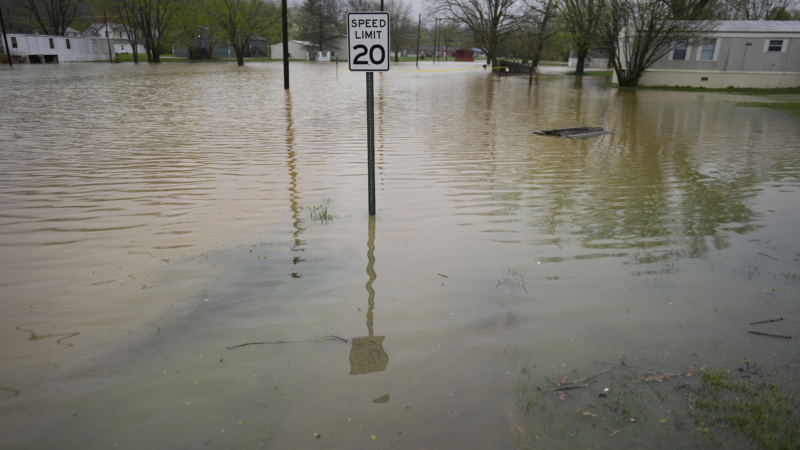Trump to make historic move towards revoking birthright citizenship
President Trump is expected to kick-start the process to revoke birthright citizenship after years of proposing the constitutional change as a way to reduce undocumented immigration.
Birthright citizenship, meaning that someone born within the U.S. or its the United States territories is automatically a U.S. citizen, is currently protected by the 14th Amendment of the U.S. Constitution. The clause often referred to states that “all persons born or naturalized in the United States, and subject to the jurisdiction thereof, are citizens of the United States and of the State wherein they reside.”
Trump wants to reinterpret the phrasing “subject to the jurisdiction thereof” to mean that the federal government would not recognize automatic birthright citizenship for children born in the U.S. to parents without legal status, incoming White House officials told reporters on a call on Monday, speaking on condition of anonymity to discuss upcoming actions.
This action is likely to see immediate legal challenges.
Details about who might be impacted or how he plans to move forward remain to be seen. He is expected to sign executive orders and actions Monday afternoon.
Over the last several decades, the number of babies born to parents without legal status to be in the U.S. has dropped. The Pew Research Center estimated that 1.3 million U.S.-born adults are children of unauthorized immigrants, according to 2022 data, the latest available.
But immigrant rights advocates said the proposed move would affect the next generation of children. An estimated 4.7 million children would have one or both parents without legal status by 2050 under current policy, according to data from the Migration Policy Institute.
“Ending birthright citizenship would be a really huge change in how we handle immigration and the right to belong in the United States,” said Julia Gelatt, associate director of the U.S. immigration policy program at the Migration Policy Institute, adding that this law contributes to the economic and educational success rates of immigrants’ children.
“Children of immigrants have had that sense of belonging and full rights in the United States that they’ve been able to harness to really support their integration.”
Novel interpretation of 14th Amendment
A growing coalition of conservatives have begun promoting a different interpretation of the 14th Amendment in an effort to limit the number of migrants without legal status in the country.
During his first term, Trump’s legal advisers encouraged his ability to unilaterally challenge it. In 2020, Trump’s State Department issued a rule change aimed at reducing the practice of traveling to the U.S. with the specific purpose of giving birth, and at the border pregnant women were removed from a list of “vulnerable” people.
During his first presidential run in 2015, Trump also promised to end birthright citizenship and in 2018, he said he would issue an executive order. But that order never came to fruition.
Immigration re-emerged as a top issue as he campaigned during the 2024 election, with Trump vowing to voters that he would end birthright citizenship. He reiterated that goal during his first cable TV interview with NBC’s Meet the Press after the election.
Immigrant rights groups argue that any effort to repeal birthright citizenship would have a detrimental effect on communities, local economies and families’ wellbeing as families leave, or live in fear that their future children may not be authorized.
“Blocking people from citizenship and even U.S. born children from citizenship could really threaten that integration and threaten how much children of immigrants can contribute to the country,” Gelatt said.
During the 2023 GOP primary, Florida Gov. Ron DeSantis and then-candidate Vivek Ramaswamy and others also called for an end to birthright citizenship for the children of parents without legal status.
Lawmakers have also debated the issue. In the last Congress, former Florida Rep. Matt Gaetz introduced legislation to limit birthright citizenship and in 2015 the House Judiciary committee held a hearing on the matter.
Still, any efforts or ideas have not made progress — until now.
Marielena Hincapie, distinguished immigration visiting scholar at Cornell Law School, said the notion that a president could be responsible for removing birthright citizenship is concerning because that authority may not belong there. Her comments suggest legal challenges are likely.
“What we do know is that the president does not have the executive authority to undo the 14th Amendment and birthright citizenship by that level,” Hincapie said. “There are many, many questions that will pop up and confusion and chaos that will be developed.”
UConn takes 12th NCAA women’s basketball title with dominant win over South Carolina
UConn is back on top of women's basketball, winning its 12th NCAA national championship by routing defending champion South Carolina 82-59 on Sunday.
Alex Ovechkin scores goal #895 to break Wayne Gretzky’s all-time NHL scoring record
The Washington Capitals star made history with a power play goal from the left faceoff circle — as Gretzky, who last set the record more than 25 years ago, looked on.
Severe storms and floods batter South and Midwest, as death toll rises to at least 18
Severe storms continued to pound parts of the South and Midwest, as a punishing and slow-moving storm system unleashed life-threatening flash floods and powerful tornadoes from Mississippi to Kentucky.
Israeli strikes on Gaza kill at least 32, mostly women and children
Israeli strikes on Gaza killed at least 32 people, including over a dozen women and children, local health officials said Sunday, as Israeli Prime Minister Netanyahu headed to meet President Trump.
Second child dies from measles-related causes in West Texas, where cases near 500
A second school-aged child in West Texas has died from a measles-related illness, a hospital spokesman confirmed Sunday, as the outbreak continues to swell.
Yemen Houthi rebels say latest US strikes killed 2, day after Trump posted bomb video
Suspected U.S. airstrikes killed at least two people in a stronghold of Yemen's Houthi rebels, the group said Sunday.







